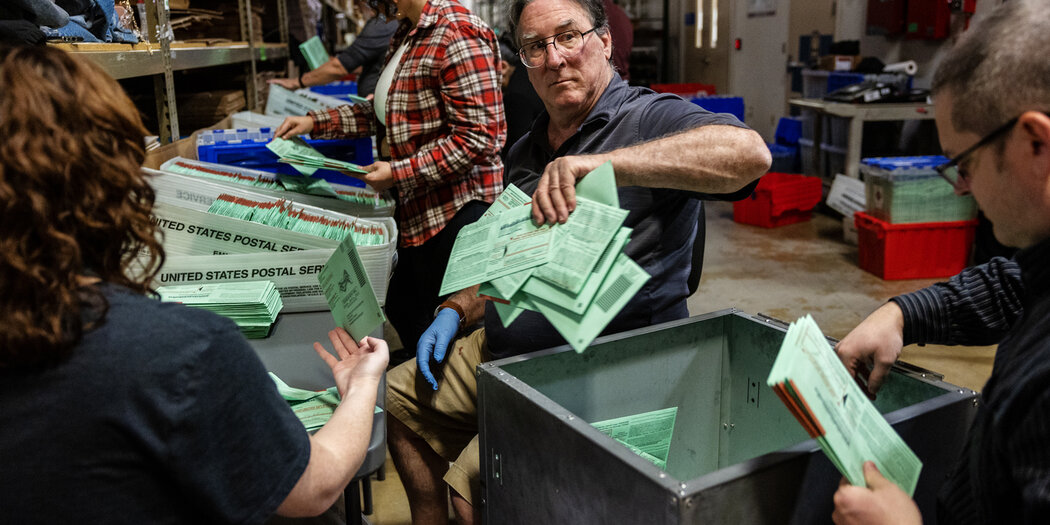Hand-Counting Votes: A Proven Bad Idea

The 2022 midterm results offer reassurance about the resilience of our election system and the public’s support for it. Numerous candidates supporting the false idea that the 2020 presidential election was somehow “stolen” ran for offices that would put them in charge of future elections, and voters rejected them in virtually every battleground state. While we’re sighing with relief at this rejection of election denialism, it’s time to reckon with a set of myths that continue to undermine our electoral system: conspiracy theories around voting machines being inaccurate or manipulated.
These falsehoods have been seized on by officials in Cochise County, Arizona, who are refusing to certify the midterm results. The fact is that voting machines are trustworthy, thanks to the numerous safeguards and systems in place to ensure their reliability.
And yet, some local and state politicians are attempting to get rid of machines and replace them with hand-counts, which are slow and error-prone — the very reasons why the method has been replaced with modern voting machines.
Few jurisdictions with more than 1,000 voters count votes by hand. In most places, voters mark a paper ballot using a pen or a touchscreen machine that prints their choices out for them. Then, the voter can verify that the listed choices accurately reflect their decisions before the ballot is run through a scanner that adds up all the votes. These touchscreen devices often have audio and other functions that can be used by persons with disabilities to vote privately and independently.
The hand-count movement is rooted in conspiracy theories, but it also plays on valid concern that any system of voting, including machine voting, has areas of vulnerability that need safeguarding. To address these valid concerns, it’s essential to maintain voting equipment, keep its software up to date, and have strict security protocols both online and in the physical world.
Most states require their voting machines to meet federal or state security standards. They also conduct accuracy testing on the machines before every election, and most perform routine tabulation audits after the election. These best practices should be expanded nationally.
Hand-counts are an important tool in post-election audits, where officials count small samples to verify machine-tallied results. But counting entirely by hand is impractical anywhere larger than the smallest jurisdictions. Studies show that hand-counting ballots produces more errors than machine tabulation.
For example, in an experiment from Rice University using only 120 ballots, people counting by hand got it right only 58 percent of the time. Now imagine multiplying that by 100 or 1,000. As a Bipartisan Policy Center report put it, humans, unlike tabulation machines, are “notoriously poor at completing rote, repetitive tasks.”
Just look at what happened in Nye County, Nevada, where the chief election official tried to reject machine counts in his county of over 20,000 voters. County Clerk Mark Kampf — an election denier — ultimately scaled back his plan to a “parallel” hand-count performed by hundreds of volunteers and ballparked a 25 percent error rate for that hand-count in an interview the day after the election.
Additionally, counting by hand is slow. The United States tends to have longer ballots than in other countries. Counting all of the contests on them by hand introduces delay, which itself causes uncertainty and makes room for unfounded claims of fraud.
Instead of returning to error-prone and impractical hand-counting, we should be working on improving and modernizing our machine-based systems across the country, protecting them from cyberattacks and updating equipment. We should also promote best practices for ensuring an accurate count, such as logic and accuracy testing on machines and good post-election audits.
Voters have spoken. They want elections administered accurately, not based on denial and anger over past losses.

